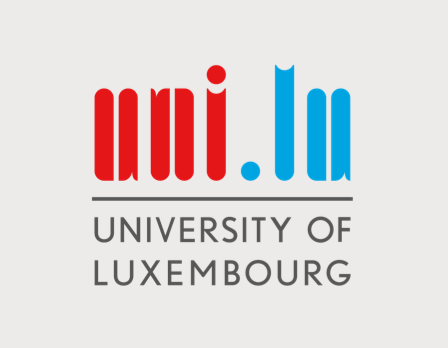Claudia Fiore came from a family passionate about international commerce. From production to sales, these key pillars of the economy and how they are connected to a huge network of human relations, fascinated her. An undergraduate degree in economics and management at a local university followed, but her itch to travel and yearning for international experience remained. Moving abroad for her next degree was imminent.
“The opportunity to live in a multilingual, relatively young, and flexible environment, as well as the combination of professional and academic lecturers convinced me that the University of Luxembourg (Uni.lu) would be the right path for my future career,” she says.
It was. Since joining Uni.lu, her professional journey has been a series of successful steps — one buoyed by the knowledge, skills and experience she gained from her Master in Accounting and Audit. After a stint with a Luxembourg internet solutions firm, she landed a position in Amazon as a financial analyst. Today, she is a programme manager with the e-commerce giant’s Luxembourg arm.
“I think that the University of Luxembourg has a unique and this encouraged me not to limit myself in terms of work opportunities,” says Claudia. “It is really proactive and there are different organised events to get in touch with companies. Lecturers from academia and industry are always ready to guide students in their future careers with valuable advice and experiences.”
Luxembourg’s avenues are home to one of Europe’s most pre-eminent financial capitals. Post-Brexit, its clout is set to grow bigger. A wide range of sophisticated financial services connect investors to markets around the world. As one of the country’s leading industries, its key strengths revolve around investment funds, banking and insurance.

Source: University of Luxembourg
Uni.lu has deep links with them. Master’s programmes incorporate the insight and expertise of the movers and shakers of this finuni.ancial hub, such as Luxembourg Bankers’ Association (ABBL), the Luxembourg Investment Fund Association (ALFI) and the Luxembourg Insurance and Reinsurance Association (ACA). All meet the highest international standards and provide the Luxembourg edge: career-readiness.
“Simulations hosted by partner companies, external speakers and internship opportunities offer students the chance to meet professionals and gain a deeper understanding of the subject areas,” says programme director Thomas Kaspereit. “Luxembourg is home to numerous EU institutions, an international financial centre and a growing business community, providing an ideal location to start your career.”
During their second year, students undertake an internship, concluded by a business case project report, or a master thesis. In her first steps into the professional world, Claudia got to apply lessons learnt from her favourite classes — such as Accounting Theory, Financial Accounting and Reporting and Financial Analysis — at an internship. “The university supports and promotes multiple student job opportunities in and outside the university,” she says. These were “precious opportunities” to enter the job market, according to Claudia.
Master in Accounting and Audit student Anuradha Sarda agrees. “The special thing about studying at the University of Luxembourg is its industry-focused teaching,” she says. “You are taught by the best people in the industry, using case studies and project-based learning.”
Integrating work with study brings many benefits. It is a catalyst for social mobility, one research paper found. Year-long placements as part of a degree programme were found to help working-class students join top professional firms. This is despite the fact that social mobility into high-quality, high-status, and high-reward professions like financial services and accountancy has slowed in recent decades.
There is more considerable evidence of its positive impact. Two different reviews of multiple studies found that where there is proper planning and management of work-integrated learning, students develop their professional identity, communicate better with people in diverse roles, advance theoretical knowledge and transferable skills, enhance digital literacy, understand what ethical practice means and do better in teams, problem-solving and self-management.
These skills mirror the ones Claudia gained at Uni.lu and is using today in her current role. “I highly value the financial skills that I can apply in my daily profession, such as reporting, forecasting, budgeting and strategic or managerial accounting,” she shares. “I learned how to think critically and quickly react to solve problems. Finally, being the student representative challenged me in exercising communication skills to interact face-to-face with others.”
With passion, dedication and determination, Claudia harnessed all she learned — directly and indirectly — into charting her career path. “The strong financial knowledge and analytical skills acquired during these years and the methodical approach have helped me along the way,” she says. “In one sentence, the great value of being a Faculty of Law, Economics and Finance graduate is being prepared with the right skill set for today’s professional job market.”
Follow the University of Luxembourg’s Faculty of Law, Economics and Finance on Facebook, Twitter, and LinkedIn.













